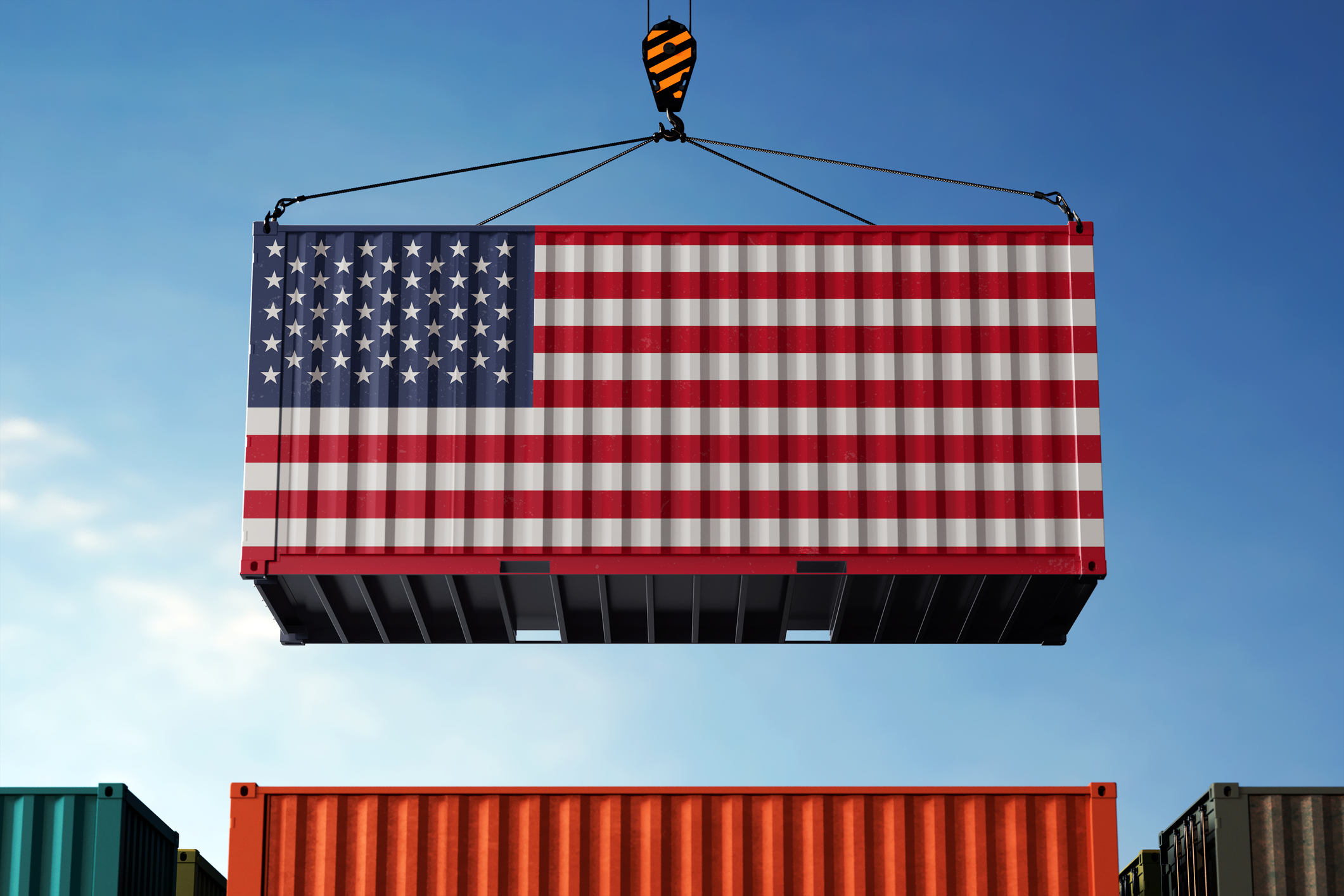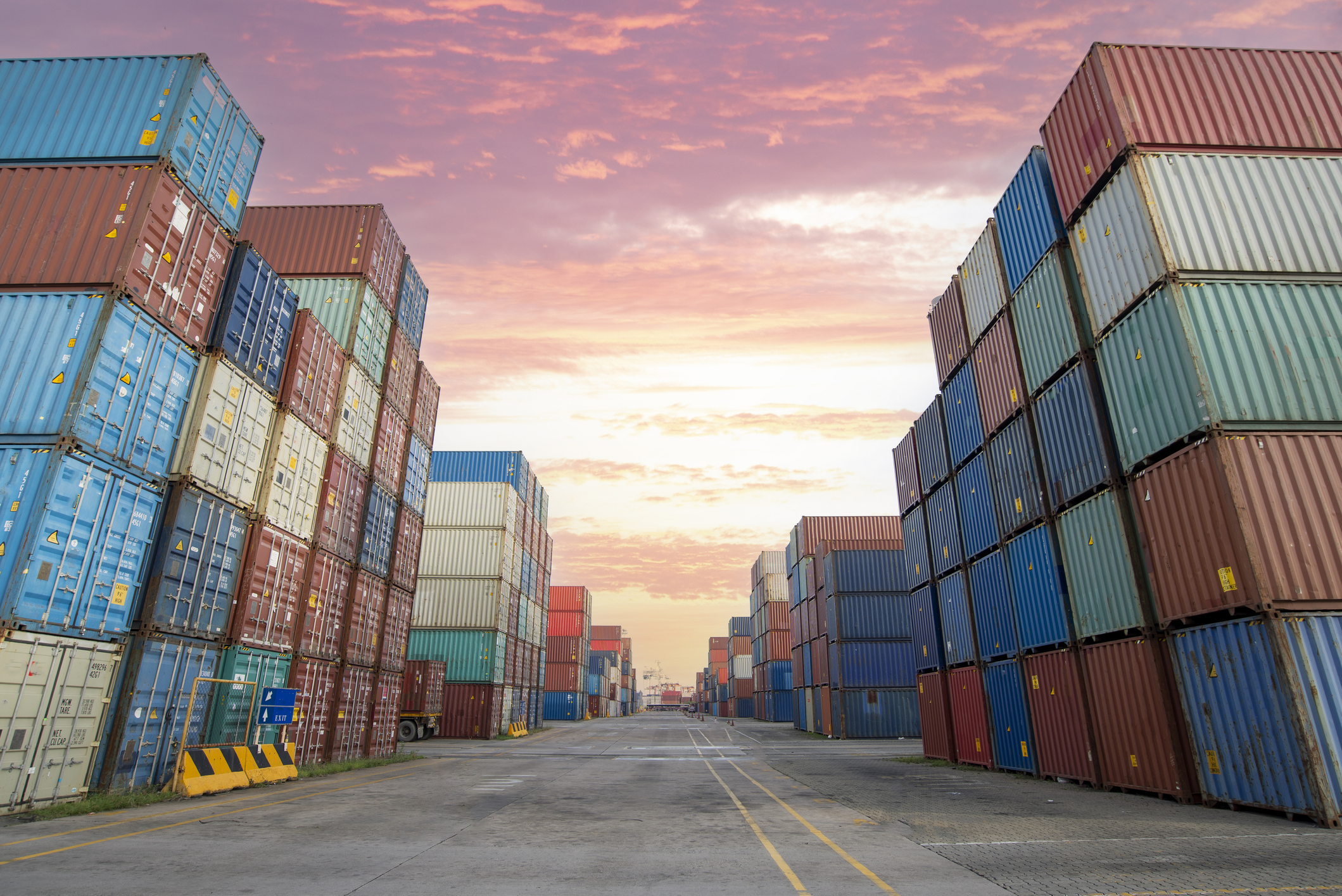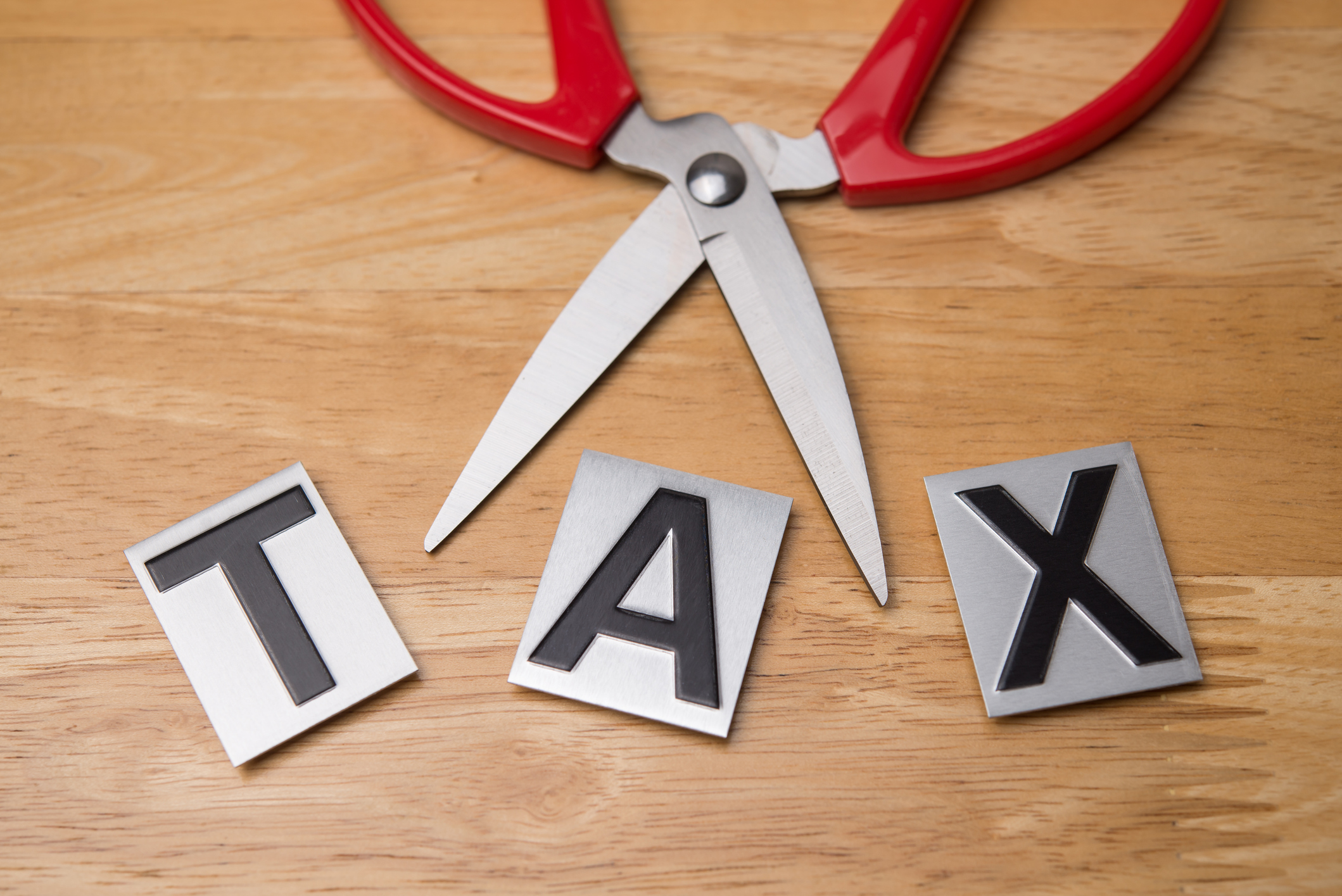How Tariffs Work and What They Mean for You in 2025
President Donald Trump is raising tariffs on all foreign goods, but how do tariffs work, and who pays?


Profit and prosper with the best of Kiplinger's advice on investing, taxes, retirement, personal finance and much more. Delivered daily. Enter your email in the box and click Sign Me Up.
You are now subscribed
Your newsletter sign-up was successful
Want to add more newsletters?

Delivered daily
Kiplinger Today
Profit and prosper with the best of Kiplinger's advice on investing, taxes, retirement, personal finance and much more delivered daily. Smart money moves start here.

Sent five days a week
Kiplinger A Step Ahead
Get practical help to make better financial decisions in your everyday life, from spending to savings on top deals.

Delivered daily
Kiplinger Closing Bell
Get today's biggest financial and investing headlines delivered to your inbox every day the U.S. stock market is open.

Sent twice a week
Kiplinger Adviser Intel
Financial pros across the country share best practices and fresh tactics to preserve and grow your wealth.

Delivered weekly
Kiplinger Tax Tips
Trim your federal and state tax bills with practical tax-planning and tax-cutting strategies.

Sent twice a week
Kiplinger Retirement Tips
Your twice-a-week guide to planning and enjoying a financially secure and richly rewarding retirement

Sent bimonthly.
Kiplinger Adviser Angle
Insights for advisers, wealth managers and other financial professionals.

Sent twice a week
Kiplinger Investing Weekly
Your twice-a-week roundup of promising stocks, funds, companies and industries you should consider, ones you should avoid, and why.

Sent weekly for six weeks
Kiplinger Invest for Retirement
Your step-by-step six-part series on how to invest for retirement, from devising a successful strategy to exactly which investments to choose.
Tariffs on imported goods are a favored proposal in the eyes of President Donald Trump, who is imposing sweeping universal tariffs.
Since April, Trump has implemented a 10% baseline tariff on most imports in an on-again, off-again fashion (currently paused), with escalating rates targeting specific nations.
These measures have triggered price increases and retaliatory actions from trading partners.
From just $107.88 $24.99 for Kiplinger Personal Finance
Become a smarter, better informed investor. Subscribe from just $107.88 $24.99, plus get up to 4 Special Issues

Sign up for Kiplinger’s Free Newsletters
Profit and prosper with the best of expert advice on investing, taxes, retirement, personal finance and more - straight to your e-mail.
Profit and prosper with the best of expert advice - straight to your e-mail.
The Trump administration's tariffs are at historic levels, and the results could be troubling for U.S. consumers. Tariffs are said to cause prices of everyday goods to spike.
Here’s what you should know about what's happening with tariffs and how they impact your finances.
What are tariffs?
Tariffs are taxes that governments impose on goods and services imported from another country. Tariffs can be a source of revenue for a country but can also be used as a barrier to regulate international trade and safeguard domestic industries.
Governments generally impose tariffs for several reasons including to:
- Raise revenue
- Protect consumers and domestic industries
- Safeguard the nation from unfair trade practices
However, taxing imported goods can make those products more expensive to consumers. Tariffs also can make local products more attractive to buyers and spur competitiveness in the market, price gouging by locals — or in some cases, inflation.
Tariffs are still implemented as a “targeted tool” to protect the U.S. against unfair trade practices. However, data show that using tariffs as a revenue source can harm low- and middle-income households and benefit those with higher incomes.
How tariffs work: Who pays for tariffs?
When Trump imposed tariffs on various imports during his first term, U.S. consumers and firms were the hardest hit.
- When tariffs are levied on imports from foreign countries, the U.S. directly pays import taxes (tariffs) to the U.S. government for their purchases abroad, according to the Tax Foundation.
- However, the economic burden of tariffs generally falls on consumers. After U.S. businesses pay import tariffs, they often pass on price increases to consumers to make a profit.
- As part of the collateral damage from tariffs, consumers might see prices of goods increase or product stagnation, to name a few.
For example, if a U.S.-based car business is paying $20,000 to import a vehicle from China, a 60% tariff would mean $12,000 more to import that car. Some of that price increase might be passed onto the consumer, resulting in a more expensive car.
"Tariffs are ultimately paid for in large part by consumers and businesses in the domestic economy," the Tax Foundation underscored during the pandemic.
Where will you see prices increase due to tariffs? Pretty much across the board, from essentials such as food and medicine to toys and apparel. Here are a few examples of tax increases on everyday items.
- $200 on food
- $210 on medicine
- $300 on electronics
- $220 on apparel, footwear, and jewelry

Are tariffs good or bad?
Overall, tariffs can be a double-edged sword, offering political leverage and domestic protection while imposing regressive consumer costs and economic risks.
Right now, Trump's sweeping tariffs will likely harm most households and GDP growth, though specific industries could benefit, depending on what happens with the levies and retaliation.
While every U.S. household would likely see a tax increase under Trump’s tariff plans, the highest earners would benefit the most. That’s because, as the Peterson Institute for International Economics (PIIE) finds, high tariffs often imply a “massive shift of the tax burden from richer taxpayers toward lower-income households.”
Under a 10% worldwide tariff and 60% tax on imported Chinese goods, the Tax Policy Center projected that U.S. households could see declines in after-tax income anywhere from 1.7% to 1.9%.
However, those in the top 0.1% would see their after-tax income fall by about 1.4%. Those impacts will be more significant, given the 104% tariff recently imposed by Trump on China.
In dollar terms, Trump’s higher tariffs likely mean:
- Lower-income households (those earning up to $32,800 a year) would pay about $320 more in taxes (an after-tax income decline of 1.7%)
- Middle-income households (earning from $63,300 to $113,100) would pay about $1,350 more in taxes (an after-tax income decline of 1.8%)
- The top 0.1% (those earning more than $4 million annually) would pay about $133,000 more in taxes (representing an after-tax income decline of 1.4%)
“It’s a high-stakes game, and what is at stake is the health of the US economy and that of the rest of the world,” the organization recently noted.
Trump tariffs: Bottom line
Sweeping tariffs are a key part of Trump’s second-term policies. Most economists who oppose this policy see it as a tax that could harm those with lower and middle incomes.
While tariffs can foster less dependence on other countries' goods and promote competition, they're taxes that can increase prices for consumers such as you.
Separately, Trump has floated the idea of an External Revenue Service that would collect tariffs and fees. Details aren't available yet.
Read More
- Hallmark Raising Prices Due to Tariffs: What to Know
- Trump’s Pitch for an ‘External Revenue Service’
- What's Happening Now With Trump Tariffs?
Profit and prosper with the best of Kiplinger's advice on investing, taxes, retirement, personal finance and much more. Delivered daily. Enter your email in the box and click Sign Me Up.

Gabriella Cruz-Martínez is a finance journalist with 8 years of experience covering consumer debt, economic policy, and tax.
Gabriella’s work has also appeared in Yahoo Finance, Money Magazine, The Hyde Park Herald, and the Journal Gazette & Times-Courier.
As a reporter and journalist, she enjoys writing stories that empower people from diverse backgrounds about their finances, no matter their stage in life.
-
 Quiz: Do You Know How to Avoid the "Medigap Trap?"
Quiz: Do You Know How to Avoid the "Medigap Trap?"Quiz Test your basic knowledge of the "Medigap Trap" in our quick quiz.
-
 5 Top Tax-Efficient Mutual Funds for Smarter Investing
5 Top Tax-Efficient Mutual Funds for Smarter InvestingMutual funds are many things, but "tax-friendly" usually isn't one of them. These are the exceptions.
-
 AI Sparks Existential Crisis for Software Stocks
AI Sparks Existential Crisis for Software StocksThe Kiplinger Letter Fears that SaaS subscription software could be rendered obsolete by artificial intelligence make investors jittery.
-
 How to Open Your Kid's $1,000 Trump Account
How to Open Your Kid's $1,000 Trump AccountTax Breaks Filing income taxes in 2026? You won't want to miss Form 4547 to claim a $1,000 Trump Account for your child.
-
 Trump $10B IRS Lawsuit Hits an Already Chaotic 2026 Tax Season
Trump $10B IRS Lawsuit Hits an Already Chaotic 2026 Tax SeasonTax Law A new Trump lawsuit and warnings from a tax-industry watchdog point to an IRS under strain, just as millions of taxpayers begin filing their 2025 returns.
-
 Law Reversal Looming? Trump Eyes 2026 Gambling Winnings Tax Change
Law Reversal Looming? Trump Eyes 2026 Gambling Winnings Tax ChangeTax Deductions It's no secret that the IRS is coming after your gambling winnings in 2026. But how long will that last?
-
 Trump's Plan to Eliminate Income Tax: 7 Things to Know Now
Trump's Plan to Eliminate Income Tax: 7 Things to Know NowTax Policy The potential consequences of eliminating taxes in favor of Trump tariffs could impact everything from inflation to Social Security and might give some U.S. taxpayers pause.
-
 Is a New $25,000 Health Care Tax Deduction Coming in 2026?
Is a New $25,000 Health Care Tax Deduction Coming in 2026?Tax Policy A proposal from GOP Sen. Josh Hawley adds to the chatter about health care affordability.
-
 Costco Sues Over Trump Tariffs: What Could That Mean for Prices in 2026?
Costco Sues Over Trump Tariffs: What Could That Mean for Prices in 2026?Tariffs The retailer is making headlines not just for its famous hot dog and gold bars but for suing the Trump administration over tariffs.
-
 Are New Trump $2,000 Stimulus Payments Coming in 2026? What to Know Now
Are New Trump $2,000 Stimulus Payments Coming in 2026? What to Know NowTax Policy A promise of $2,000 tariff dividend checks is raising questions and fueling confusion.
-
 Could Tax Savings Make a 50-Year Mortgage Worth It?
Could Tax Savings Make a 50-Year Mortgage Worth It?Buying a Home The 50-year mortgage proposal by Trump aims to address the housing affordability crisis with lower monthly mortgage payments. But what does that mean for your taxes?